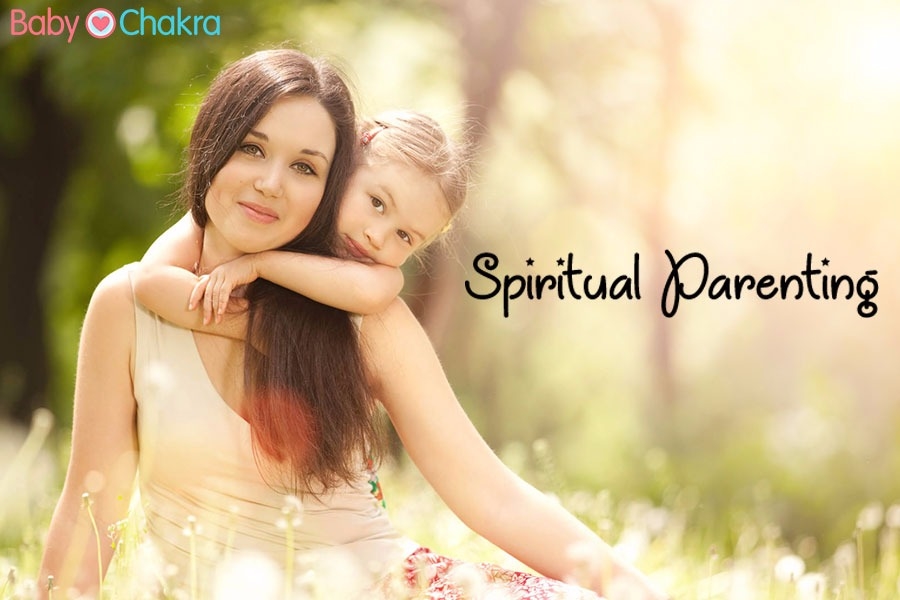
Raising a Spiritual Child: Live Chat Highlights (Part I)
20 Sep 2017 | 4 min Read
Babychakra
Author | 1369 Articles
“You don’t own your child’s soul and nor does the child own you!”
Frustrated with all the negativity that the world throws your way? Don’t know how to filter that down to your child so that s/he grows into a positive person rather than absorbing all that negativity? The Universe is an abundance of energies – positive and negative. And we are the ones who can decide what kind of energy we attract. So become conscious and focus on the positives – spiritual parenting is essentially that.
Anshul Bafna, business psychologist and spiritual coach answered questions on spiritual parenting in a Live Q&A on BabyChakra. Don’t worry if you missed it. Here are the highlights.
Q: What encompasses spiritual parenting? Till what age can we mould our child’s thinking in the right direction?
A: Spiritual parenting basically means helping our child grow and learn the ways of the world as a spiritual being in the image of God/divinity/universal source. You do not own your child’s soul nor does the child own you! It is important to understand this and help explore the best in them and improve mistake areas. It starts from the time you get pregnant. The process is lifelong. Main years are till 17-18 where they make their own mindsets.
Q: My parents are of different religious beliefs. My beliefs differ from those I was born around or married into. My child can select what he believes in, but how can I prevent him from getting confused?
A: It is most important not to get your child confused when it comes to religion. Focus on helping your child pray. By pray, I mean having a conversation with God (don’t stress on any belief system). Teach them basics, like the joy of giving, gratitude and educate him/her about how he is a spiritual being. Slowly, they will enjoy their own experiences and decide for themselves. Help them with basic prayers that you know.
Q: I’m 30 weeks pregnant. Lately, the thought of labour disturbs me. Is there a way to bond with my baby for a smooth and safe delivery?
A: Of course! Every mother has times when she feels scared. You need to remember that you and the world in you and around you is vibrational. Whatever you feel will be transferred to the womb. Keep saying, “I love myself and my baby the way we are. We are connected spiritually and thank you for being in me.” During labour keep thinking, “I am blessed with a healthy baby and a smooth delivery. Thank you Universe.”
Q: My 4-year-old tends to get very angry at times. We talk about the cause and I even ask him to take a deep breath and count. Is this extreme anger a phase? What are healthy practices in anger management for toddlers and parents?
A: Anger comes from unresolved areas either seen or not completely understood. How is the environment in the house? Is it negative? Were you happy or angry when pregnant? Breathing is good to control anger. Practice counting happy things in life everyday. This helps dissolve anger.
The key to imbibe positivity in children is to keep them surrounded by encouraging words and a happy energy. How about starting today?
Stay tuned for Part II with many more interesting questions answered! Have a question that is not part of the list? Ask your question in the comments below and we will get you an answer!
Also read: Raising a Spiritual Child: Live Chat Highlights (Part II)
Explore the entire collection of articles: Parenting Gyaan
If you are reading this article on our website and have an Android phone, please download our APP here for a more personalised experience based on your lifestage.
A


Suggestions offered by doctors on BabyChakra are of advisory nature i.e., for educational and informational purposes only. Content posted on, created for, or compiled by BabyChakra is not intended or designed to replace your doctor's independent judgment about any symptom, condition, or the appropriateness or risks of a procedure or treatment for a given person.
